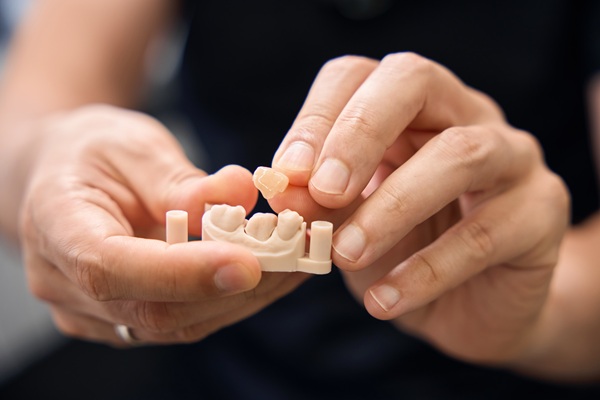 Dental crowns are incredibly useful for tooth restoration because they can fix various aesthetic defects and restore strength to teeth that have been weakened by decay or injuries. One of the most important advantages of crowns is their longevity; with good treatment, your new crowns will last a long time. Knowing what precautions to take to avoid destruction is crucial. The good part is that you can care for a crown as you would a natural tooth.
Dental crowns are incredibly useful for tooth restoration because they can fix various aesthetic defects and restore strength to teeth that have been weakened by decay or injuries. One of the most important advantages of crowns is their longevity; with good treatment, your new crowns will last a long time. Knowing what precautions to take to avoid destruction is crucial. The good part is that you can care for a crown as you would a natural tooth.
Oral care routine for dental crowns
The following oral care tips will help guarantee that the crowns survive many years of use:
Brush and floss the teeth regularly
The crown may be an artificial prosthetic, but the tooth under it still requires regular dental treatment to remain healthy. Although the crown covers the whole tooth surface, patients must clean it gently to remove sticky plaque film and keep it looking good. Flossing is also important because bacteria and food particles can easily get stuck between the crown and the gums or a nearby tooth.
Avoid bad oral habits
Patients also need to avoid habits like nail-biting, chewing on pencils, ice, or other hard things, and teeth grinding. Using the teeth as "tools" to pry open bottle caps or cut items is not advisable. These practices can crack crowns and even break or chip natural teeth. Furthermore, hard objects can break and become trapped between the gums, causing injury. It is necessary to break this habit to protect one's tooth and dental crowns.
Use a night guard
One can attempt to break a grinding and clenching reflex when conscious. But the issue is that many people grit and clench their teeth while asleep, and they are unaware of it. Grinding and clenching may not seem to be major issues at first, but they may do permanent damage to the teeth over time.
Grinding and clenching will greatly raise the pressure on the teeth, putting the crown at risk of breaking. The dentist can tell whether a patient grits their teeth just by looking at them and the gums. In that case, the dentist can fabricate a personalized nightguard to protect the crown and cushion the teeth while sleeping.
Visit the dentist regularly
Regular checkups and cleanings every six months are essential to ensure that the gums around the crown remain intact, as well as the supporting tooth. The dentist will be able to inspect the crown during the appointment to ensure that it is still secure and fits well, making sure it lasts for years.
Avoid sticky and hard foods
Crowns are sturdy and long-lasting, but they, like normal teeth, can get damaged. Chewing on ice or hard candies will cause the crown to chip, crack, or split, necessitating a crown replacement sooner than usual. Sticky or chewy foods will also trigger issues, either when cracking or loosening the crown or when the sticky parts get trapped between the crown and gums. If at all possible, stay away from these foods or reduce intake of them.
In conclusion
Book an appointment today to learn more about dental crowns and their applications for smile restoration.
Request an appointment or call Heather Feray Bohan, DDS, PA at 281-864-1581 for an appointment in our Tomball office.
Recent Posts
Dental crowns are the most popular way to restore teeth that are in bad shape due to decay, injury or other imperfections. Modern-day dentistry has allowed for the evolution of many different material choices, all of which offer their own pros and cons. Keep reading to learn about three options that general dentists recommend. Outlined below…
Dental crowns are one of the versatile restorations used in dentistry. Crowns are used to save damaged teeth that cannot be saved using less invasive procedures. Damage can occur to teeth at any time, leaving them severely compromised.Placing a crown on a tooth requires making permanent alterations by removing enamel to create a better fit.…
A dental crown is a versatile restoration that can be used to address a wide range of dental issues like a cracked, chipped, decayed, deformed, or broken tooth. The crown covers up the part of the tooth that is visible above the gums, protecting it from further damage and acids made by oral bacteria.The severity…


